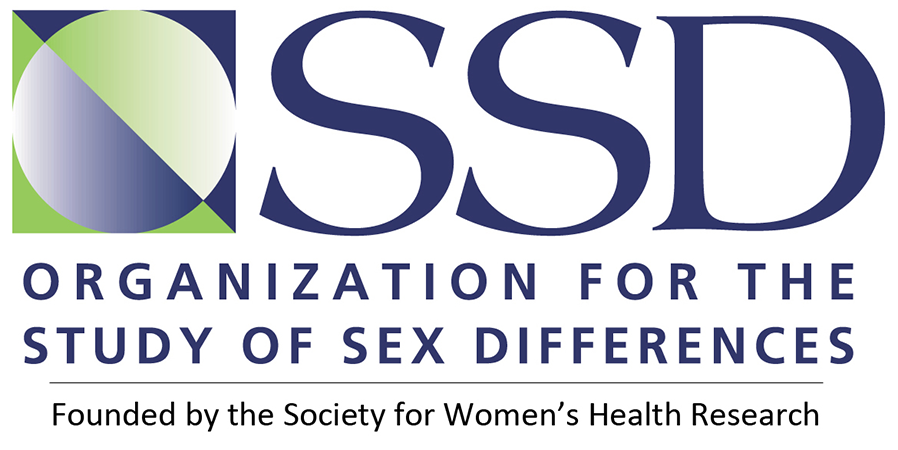|

Click Image to watch video!!
We hope you’re as excited as we are to be part of the annual meeting for OSSD this year.
Our team has worked hard to bring you an exciting, engaging, and motivating event. Please note: this is NOT a Zoom event! You’ll have chances to meet, “mingle” and network online with others, similar to an “in person” event. You can roam the virtual poster halls, join colleagues for table discussions in the virtual ballroom, pose questions as you watch live symposia, and enjoy virtual receptions and our awards gala with the cocktail of your choice.
Here are just a few the virtual advantages you’ll have this year:
- Expert Speakers Featured in Cutting-edge Symposia & Sessions – This year’s program is filled with education that is relevant to issues and challenges facing our world and how they relate your work. Hear from speakers representing NIH, FDA, top universities, medical schools, public health entities and more. Reach out to connect personally, and spend quality time – both in sessions and during networking times – interacting with the those at the forefront in our field.
- Virtual Networking – welcome to the networking ballroom! There are tables and lounges set up and, just like in real life, you can wander from table to table – even from floor to floor. Looking for an old friend or colleague? You can find them through the chat feature and “meet up” at a table! Have a topic you’d like to discuss with a group? Grab a table! Want to meet for coffee before the keynote? It’s the perfect spot.
- Poster Sessions – these will be both interactive AND self-guided, where you’ll hear the live session, ask questions, and have the ability to speak and chat with others at the same session. Don’t worry if you’re a presenter yourself, or in a time zone that doesn’t quite work; you can roam the poster halls and view posters and presenter recordings at your convenience 24/7!
- Connections Old & New – before the event opens, you’ll be able to fill in your online Profile information for easy connections with other participants. Include your picture, updates, and links to find and connect with you. And, with everyone doing this, you’ll be able to meet new people and make appointments to speak with them by looking at their profiles, too.
This meeting may not be in person, but it WILL be robust, engaging and substantive. The technology we’ll employ will be easy to use, but will allow us to share a truly rich and memorable OSSD Annual Meeting experience this year. Don’t miss it! Register now to get the early-bird rates!

** Funding for this conference was made possible, in part by 5R13AG056135 from National Institute of Aging. 'The views expressed in written conference materials or publications and by speakers and moderators do not necessarily reflect the official policies of the Department of Health and Human Services; nor does mention by trade names, commercial practices, or organizations imply endorsement by the U.S. Government.
***This conference was supported by the Food and Drug Administration (FDA) of the U.S. Department of Health and Human Services (HHS) as part of a financial assistance award 5R13FD006896 totaling $24,975 with 20% funded by FDA/HHS and $19,000 amount and 15% funded by non-government source(s). The contents are those of the author(s) and do not necessarily represent the official views of, nor an endorsement, by FDA/HHS, or the U.S. Government.
Quick Links
Arthur Arnold Distinguished Lecture
|
Capstone Speaker
|
 |
 |
|
Janine Austin Clayton, M.D.
NIH Associate Director for Research
Director, ORWH
The Ultimate Goal: Advancing Science to
Improve the Health of Women
More about Dr. Clayton
|
Roberta Brinton, Ph.D.
Director, UA Center for Innovation in Brain Science
University of Arizona Health Sciences
Tipping Points for Late-Onset Neurodegenerative
Disease: Sex Differences in MidLife Aging
More about Dr. Brinton
|
Back To Top
Important Dates
| March 19, 2021 |
Abstracts due for poster presentations
|
| March 19, 2021 |
Applications for Awards due
|
| April 2, 2021 |
Notification of the Awards
|
| April 19, 2021 |
Early registration fees are in effect until April 19.
|
| May 3-6th |
Virtual Meeting dates |
Back To Top
Abstract Instructions
Abstracts may be submitted on any subject related to the general area of sex and/or gender differences to be considered for poster presentation only. PRESENTING AUTHORS MUST SUBMIT THEIR ABSTRACT USING THEIR OWN LOG IN (e.g. Advisors may not submit an abstract for a student under the advisor's account). More than one abstract may be submitted by each author.
Abstracts should be no longer than 2,000 characters including spaces, title and authors/affiliations and prepared as a single paragraph, single-spaced Word document. Abstracts should NOT contain photos, tables or references. Data must be original and not previously published. Please include any funding acknowledgements.
Note: Once you "submit" your form, you cannot edit it, however your entries are automatically saved, so that you may exit the form and all your information will still be listed when you log back into the form.
Back To Top
Registration Fees
Join the OSSD for the best rates! Renew your membership or join the OSSD to get a reduced registration rate.
| |
Early Registration
through April 19 |
Late Registration
begins April 20
|
| Regular Members |
$125 |
$175 |
| Trainee Members |
$50 |
$75 |
| |
| NON-Members |
$325 |
$375 |
| NON-Member Trainees |
$125 |
$150 |
Abstract Fee for Poster Submissions
$0 per poster (no fee)
Prices are listed in US Dollars
|
Back To Top
Special Symposia
The Role of the X Chromosome in Sex Differences in Health & Disease
Chairs: Dr. Christine Disteche, University of Washington, Dr. Rhonda Voskuhl, UCLA
- On the “Nature” of sex and gender research. Dr. Cara Tannenbaum, CIHR, CRIUGM
- X chromosome mechanisms shown in immune responses relevant to health and disease. Dr. Rhonda Voskuhl, UCLA
- X-inactivation escapee variation by cell and tissue type: The role in sex differences in health and disease. Dr. Christine Disteche, University of Washington
- Sex Chromosome Dosage Effects on Gene Expression and Chromosome Organization in Humans. Dr. Armin Raznahan, NIMH
Differences of Sex Development: A window into sex and gender development
Chairs: Dr. Natalie Nokoff, University of Colorado Anschutz Medical Campus and Dr. Eric Vilain, GW Children’s National Medical Center
- Understanding Differences of Sex Development. Dr. Courtney Finlayson, Northwestern Feinberg School of Medicine, Lurie Children’s Hospital
- Modern Genetic Approaches to DSD. Dr. Emmanuèle Délot, The George Washington University
- Impact of sex steroids on neural stem cells. Dr. Eric Vilain, George Washington University, Children’s National Medical Center
- Psychosocial outcomes in DSD and the impact of sex steroids on the brain. Dr. David Sandberg, University of Michigan
Multifactorial Determinants and Insights into Sex Differences in the Regulation of Energy Homeostasis
Chair: Dr. Edward Wagner, Western University of Health Sciences
- Sex Differences in, and dietary influences on, cannabinoid regulation of energy homeostasis. Dr. Edward J. Wagner, Western University of Health Sciences
- Sex differences in progressive motor and metabolic phenotypes in the MeCP2-e1 deficient mouse model. Dr. Janine LaSalle, University of California, Davis
- Sex differences in the drinking response to angiotensin II. Dr. Jessica Santollo, University of Kentucky
- Estradiol Protects Proopiomelanocortin Neurons against Insulin Resistance. Dr. Oline Ronnekliev, Oregon Health and Science University
Neuroimmune Activity in Adolescence: Are sex differences all about puberty?
Chair: Dr. Heather Brenhouse, Northeastern University
- Is perineuronal net formation during adolescence differentially regulated by microglial activity in males and females? Kelsea Gildawie, Northeastern University
- Sex differences in blood brain barrier activity during adolescence. Dr. Gretchen Neigh, Virginia Commonwealth University
- Sex-specific impact of immune signaling on dopaminergic signaling during adolescence. Dr. Ashley Kopec, Albany Medical College
- Probiotic consumption during puberty mitigates LPS-induced immune responses and protects against stress-induced depression- and anxiety-like behaviors in adulthood in a sex-specific manner. Dr. Nafissa Ismail, University of Ottawa
Sex and Gender Differences in E-cigarette Use and Toxicity
Chairs: Dr. Meghan E. Rebuli, University of North Carolina, Chapel Hill and Dr. Patricia Silveyra, UNC Chapel Hill
- Gender differences in perceived stress and e-cigarette use across adolescence. Dr. Jessica L. Barrington-Trimis, USC Keck School of Medicine
- LGBT E-cigarette use and exposure to advertisements on traditional and social media. Dr. Kristen Emory, San Diego State University
- Sex-Specific Effects of Nicotine Exposure: Differences between e-cigarette vapor inhalation and intravenous nicotine self-administration. Dr.Valeria Lallai, University of California, Irvine
- Sex-dependent effects of E-cigarette in combination with other tobacco use on sleep quality. Dr. Laura Crotty Alexander, UC San Diego School of Medicine
Sex-Specific Therapies and Therapeutic Outcomes across Various Diseases
Chair: Dr. Katelyn Bruno, Mayo Clinic
- Sex differences in cardio-oncology: utilizing a genetic variant as a therapeutic target for doxorubicin-induced cardiomyopathy. Dr. Katelyn Bruno, Mayo Clinic
- Prohibitin: A potential target for sex-based new therapeutics for metabolic and immune diseases. Dr. Suresh Mishra, University of Manitoba
- Combination of aromatase inhibitor exemestane and carboplatin-based therapy for postmenopausal women with advanced non-small cell lung cancer. Dr. Patricia Young, UCLA
- Sex-specific studies in Parkinson's disease models for the repurposing of the gonadal drug Dutasteride. Dr. Amandine Isenbrandt, University of Laval
Special Session
COVID-19 Special Session: Sex and gender differences in COVID-19
Chair: Dr. Sabra Klein, Johns Hopkins Bloomberg School of Public Health
- Sex differences in COVID-19 from hamsters to humans. Dr. Sabra Klein, Johns Hopkins Bloomberg School of Public Health
- The clinical spectrum of COVID-19: sex, gender and disease susceptibility. Dr. Eileen Scully, Johns Hopkins University School of Medicine
- The gendered impacts of COVID-19 and the need for a gender responsive pandemic plan. Dr. Rosemary Morgan, Johns Hopkins Bloomberg School of Public Health
|





